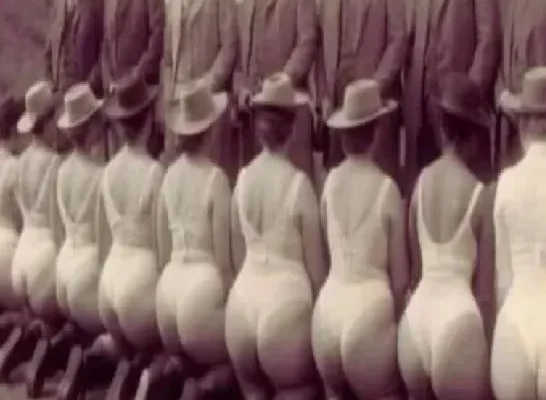In the backdrop of the 1800s and early 1900s, a peculiar tradition held sway, shrouded in the shadows of patriarchy and subservience. On the eve of December 31st, women found themselves thrust into a distressing spectacle, compelled to kneel before their husbands in a public display of contrition for their perceived wrongdoings throughout the year.
This custom, steeped in the norms of the times, not only underscored the unequal power dynamics between spouses but also laid bare the entrenched misogyny prevalent in society. In a world where women were often relegated to the domestic sphere, devoid of autonomy and agency, this annual ritual served as a stark reminder of their subordinate status.
Imagine the scene: a gathering of onlookers, their eyes fixed on the woman kneeling before her husband, her head bowed in submission as she recounted her supposed transgressions. From burnt meals to missed chores, no misstep was too trivial to escape scrutiny. And as she sought forgiveness, her dignity was sacrificed at the altar of societal expectations, her worth measured by her ability to conform to the ideals of wifely obedience.
But beyond the facade of tradition lurked the insidious impact of such practices on women’s psyche. Forced to publicly acknowledge their flaws and shortcomings, they internalized a sense of inadequacy, perpetuating a cycle of self-doubt and insecurity. Their worth reduced to mere appendages of their husbands, their voices silenced by the weight of societal norms.
Yet, amidst the darkness, there flickered a glimmer of resistance. Brave women dared to defy convention, challenging the status quo and demanding their rightful place in society. They refused to be shackled by archaic customs, asserting their autonomy and demanding to be treated as equals.
As we reflect on this shocking chapter of history, let us not consign it to the annals of the past. Instead, let it serve as a poignant reminder of the enduring struggle for gender equality and the importance of challenging oppressive norms. For only by confronting the injustices of the past can we pave the way for a more equitable future, where every individual is free to live and love without fear of judgment or retribution.



